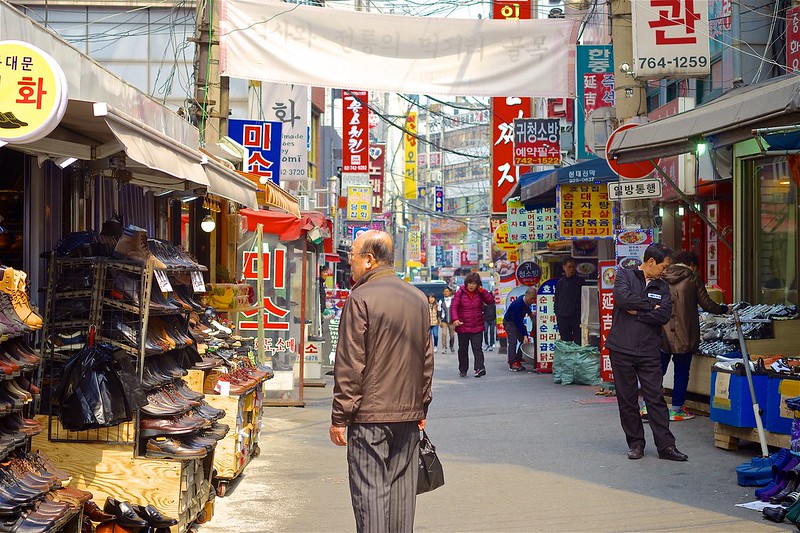The Intersection of Poverty and Mental Health in South Korea
 Mental health in South Korea is a critical issue that often falls under the radar due to the nation’s global reputation for economic prosperity and technological innovation. Despite these achievements, South Korea faces high rates of suicide and mental health challenges, exacerbated by intense societal pressures such as academic demands and workplace stress.
Mental health in South Korea is a critical issue that often falls under the radar due to the nation’s global reputation for economic prosperity and technological innovation. Despite these achievements, South Korea faces high rates of suicide and mental health challenges, exacerbated by intense societal pressures such as academic demands and workplace stress.
The Context of Mental Health in South Korea
South Korea has one of the highest rates of suicide among developed countries, with 26 deaths per 100,000 population. This devastating statistic stands in contrast to the global downward trend as South Korea’s suicide rate nearly doubled over the past 20 years, becoming the sixth leading cause of death in 2022. This crisis is exacerbated by intense societal pressures such as academic and workplace demands, with what is referred to as examination hell, in which breakdowns and suicides become frequent with students during exams where failure would lead to economic and social hardships. Moreover, South Korean culture often frowns upon seeking help for mental illness, with reports stating that only seven percent of those affected by poor mental health seek therapy or psychiatric help. Furthermore, those who do attend therapy, often pay out-of-pocket in cash to avoid any effect on their insurance.
Many South Koreans follow Confucianism, a philosophy grounded in honoring your ancestry, leading many South Koreans to forgo mental health treatment to preserve their family’s ‘dignity’. Furthermore, this philosophy emphasizes individual will, spiritual strength and self-discipline, suggesting that mental health should be tolerated rather than cured. These factors create a challenging environment for addressing mental illness, particularly for the economically disadvantaged who face amplified societal pressures and cultural stigma as well as the financial burden that places them at the forefront of examination hell.
Poverty in South Korea
Despite its remarkable economic growth, South Korea grapples with a significant poverty rate of 14.9% as of 2022, a number that is relatively high by global standards. Furthermore, this poverty rate is particularly evident among certain demographics such as the elderly and single-parent households, with 40% of Koreans above 66 years old living below the poverty line, the highest elderly income poverty rate among the Organisation for Economic Co-operation and Development (OECD) nations.
According to Kang So-Yoon, a volunteer at a Buddhist temple in Seoul who gives out free lunches, “the economy is in bad shape and older people are struggling to find work,” and, “many elderly people were unable to put aside savings for later in life because they spent too much on their children’s education.” There is a societal expectation that children will support their parents in old age. However, due to social competition and income inequality, many are struggling financially, making it harder to help their parents financially.
Poverty as a Determinant of Mental Illness
The intersection of poverty and mental health creates a complex and reinforcing cycle in South Korea. Financial instability and the daily struggle to meet basic needs such as food and shelter drive individuals living in poverty to experience heightened levels of stress, anxiety and depression. A BMC Public Health study identified low income, unemployment and financial difficulties as risk factors for all suicidal behaviors. Furthermore, socioeconomic disparities often result in reduced access to mental health services, further entrenching the cycle of poverty and mental illness.
The stigma associated with mental health issues through deeply rooted cultural and societal norms compounds these socioeconomic challenges. Individuals in poverty face a dual burden which may discourage many from seeking psychiatric help for fear of societal ostracization. Addressing this intersection requires a multifaceted approach including more access to mental health care, reduction of stigma and implementing policies to provide financial support.
Government Policies and Initiatives
As of December 2023, South Korean President Yoon Suk Yeol, vowed that the government will begin proactively addressing mental health issues through the Mental Health Policy Innovation Plan calls for the state to actively manage the entire cycle of mental illness, from prevention to recovery. Under this plan, a total of one million people are expected to receive psychological counseling funded with government support by 2027. Furthermore, the government will increase national mental health checkups for young people aged 20-34 from every 10 years to every two years, aiming for early intervention of mental health risks. Through this policy, the South Korean government aims to reduce the suicide rate by 50% by 2033.
Grassroots Initiatives and NGOs
Nongovernmental organizations (NGOs) also play a crucial role in addressing mental health challenges in South Korea. The Korean Ministry of Health and Welfare supports the Korea Foundation for Suicide Prevention, an NGO dedicated to educating policy establishment, analyzing causes of suicide and improving awareness while managing high-risk groups and bereaved families. In doing so, the Korea Foundation for Suicide Prevention aims to systematically implement suicide prevention, working alongside the government’s plan to halve the suicide rate within 10 years.
Looking Ahead
South Korea’s commitment to addressing the intertwined challenges of mental health and poverty promises to transform countless lives through comprehensive policies and robust support systems. As the government and NGOs actively collaborate to break the stigma and provide accessible mental health services, they renew hope for reducing disparities and enhancing societal well-being. These ongoing initiatives aim to destigmatize mental health care and integrate it into the fabric of community support, ensuring no one is left behind in South Korea’s journey toward greater social equity.
– Emily Weir
Emily is based in Bath, UK and focuses on Global Health and Celebs for The Borgen Project.
Photo: Flickr
